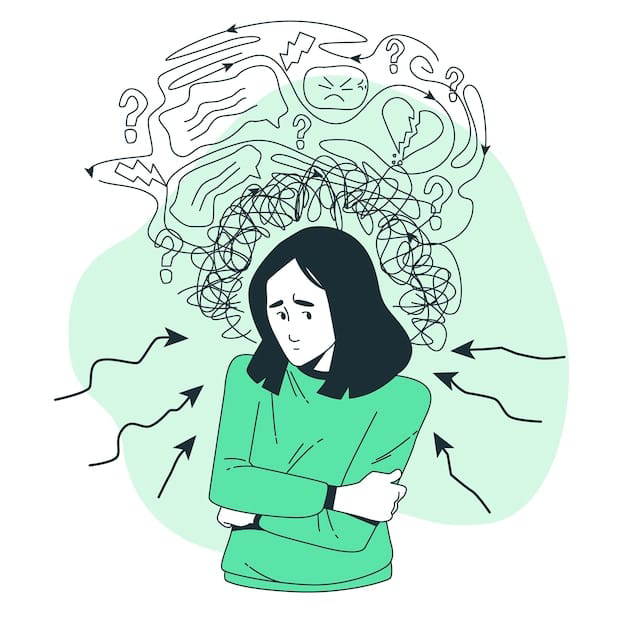Hi all, today I would like to share about the interesting topic, namely "What makes people have a scarcity mindset", the main reason why I choose that topic because not everyone recognize what makes people have a scarcity mindset, if we use different perception from psychological view, what makes people have scarcity mindset is people depend too much on their material world rather than their qualifications, when people have scarcity mindset, people will get the feeling of lacking, if the habit keeps continuing, as impact, they can't see something that can be called as future hope, on the other side, when they meet problem, they definitely will blame the situation when what they believe contradict with reality, a scarcity mindset is a way of thinking where people focus on what they lack rather than what they have. This perspective can be deeply rooted in various psychological, social, and environmental factors, including:
1. Early Life Experiences
Poverty or Financial Insecurity: Growing up in an environment where resources (money, food, opportunities) were scarce can shape one's worldview.
Unpredictable Environments: Unstable or chaotic childhoods, even in wealthier families, can instill a fear of scarcity.
2. Trauma or Negative Experiences
Loss or Deprivation: Experiences like losing a job, financial crisis, or personal tragedy can trigger a scarcity mindset.
Survival Mode: When people face ongoing challenges (like chronic illness or abuse), their focus often narrows to meeting immediate needs.
3. Cultural and Social Influences
Competition and Comparison: Living in a society that emphasizes competition (e.g., for jobs, status, or social validation) can heighten the perception of limited resources.
Inequality: Being in an environment where others have significantly more can amplify feelings of lack.
4. Psychological Factors
Fear of Failure: A focus on avoiding loss rather than pursuing gains can keep people stuck.
Low Self-Esteem: Believing one is undeserving of abundance can reinforce scarcity thinking.
5. Biological and Cognitive Biases
Stress and Brain Functioning: Scarcity-related stress can impair decision-making, making it harder to see long-term solutions.
Tunnel Vision: The brain naturally narrows its focus when resources are scarce, which can reinforce feelings of lack.
6. Reinforcement by Environment
Debt or Ongoing Struggles: Persistent financial or resource constraints can keep people trapped in a scarcity mindset.
Lack of Support: Without community or safety nets, individuals may focus only on survival.
Shifting out of a scarcity mindset often requires a combination of addressing external circumstances (e.g., improving financial literacy or access to resources) and internal growth (e.g., practicing gratitude, mindfulness, or reframing beliefs).
Shifting from a scarcity mindset to an abundance mindset involves changing both your thought patterns and behaviors. It requires practice, self-awareness, and sometimes external support. Here are effective steps to make the transition:
1. Cultivate Self-Awareness
Recognize Scarcity Thinking: Pay attention to thoughts that focus on lack, fear, or competition. For example, thinking "I’ll never have enough money" or "Opportunities are only for others."
Challenge Negative Beliefs: Question whether these thoughts are based on facts or fears. Replace them with more balanced, empowering beliefs.
2. Practice Gratitude
Daily Gratitude Journaling: Write down 3-5 things you’re grateful for every day. This helps shift focus from what’s missing to what’s already present.
Acknowledge Small Wins: Celebrate even minor successes or progress, reinforcing a sense of abundance in your life.
3. Reframe Situations
Focus on Possibilities: Instead of seeing obstacles, look for opportunities or lessons in challenges.
Shift from "Either/Or" to "Both/And": Scarcity sees choices as limited, while abundance recognizes that multiple outcomes or solutions may coexist.
4. Expand Your Perspective
Surround Yourself with Positive Influences: Spend time with people who inspire and encourage abundance thinking.
Learn Continuously: Engage in books, podcasts, or courses that promote growth and abundance (e.g., The 7 Habits of Highly Effective People by Stephen Covey).
5. Focus on Giving
Share Your Time or Skills: Helping others reinforces a sense of abundance by reminding you of what you can offer.
Generosity Over Hoarding: Even small acts of generosity—like buying coffee for a friend—signal abundance to your brain.
6. Manage Stress and Scarcity Triggers
Improve Financial Literacy: If money is a source of scarcity, create a budget or plan to build financial confidence.
Practice Mindfulness: Techniques like meditation or deep breathing help reduce stress and expand your awareness of opportunities.
7. Set Goals and Take Action
Create an Abundance Vision: Define what abundance looks like for you (e.g., financial freedom, meaningful relationships, health).
Focus on Growth: Shift from worrying about "enough" to taking steps toward your goals. Break them into manageable actions.
8. Limit Comparisons
Embrace Your Journey: Recognize that your path is unique, and comparing yourself to others only reinforces scarcity thinking.
Control Media Intake: Reduce exposure to content that fosters envy or inadequacy, like social media highlight reels.
9. Practice Patience and Consistency
Embrace Gradual Change: Shifting mindsets takes time. Be patient with yourself and celebrate progress.
Use Affirmations: Repeat positive affirmations like "There is enough for everyone, including me."
10. Seek Support
Coaching or Therapy: Professionals can help identify deep-rooted scarcity beliefs and develop strategies to replace them.
Join Communities: Engage with groups focused on personal growth or abundance.
By consistently applying these practices, you can retrain your mind to see opportunities, resources, and possibilities, even in challenging situations, hopefully this article can give you an insight how to improve your life, good luck.











